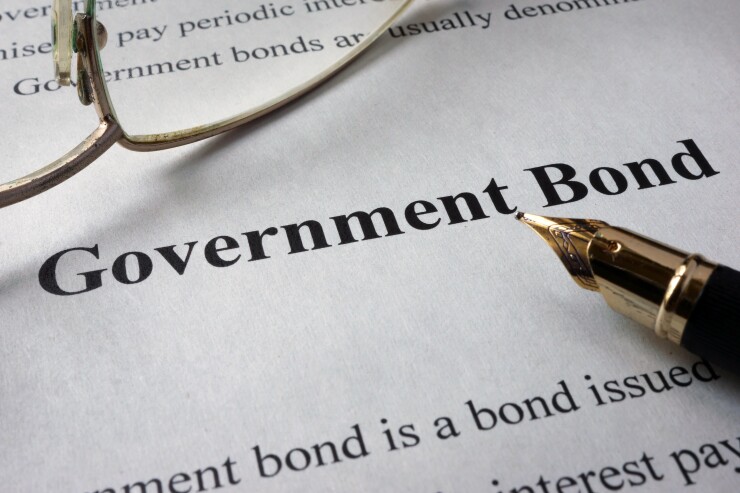(Bloomberg) --Once again during the hoped-for year of the bond, investors in Treasury debt are looking at losses.
The year-to-date return from US government notes and bonds as measured by the Bloomberg Treasury index was -0.13% through Tuesday. The negative return, though not the first this year, signifies that the interest income the assets throw off is more than offset by the price declines associated with rising yields.
While only the longest-maturity Treasury yields reached new 2023 highs this week, their greater price sensitivity to yield changes eroded what was left of a year-to-date gain that exceeded 4% in early April. Ten- and 30-year Treasury yields rose to the highest levels since October Tuesday after stronger-than-anticipated July retail sales data challenged expectations for Federal Reserve rate cuts beginning next near.
The US economy's surprising resilience in the face of Fed rate increases totaling more than 5 percentage points over the past 18 months, combined with expectations for increased quantities of Treasury debt over the coming quarter to plug bigger federal deficits has prompted investors to demand higher interest rates, eroding the value of notes and bonds sold at lower rates earlier in the year.
"Treasury auction sizes will go up again — over the next couple of refundings in November and February — and if inflation doesn't come back down, the market will need higher yields to absorb that supply," said Michael Cudzil, portfolio manager at Pacific Investment Management Co. The Treasury's quarterly refundings are when note and bond auction sizes are adjusted if necessary.
Treasury Market Total Return Turns Negative Again
The benchmark 10-year yield hovers around 4.2% after reaching 4.27% Tuesday, its highest level since October. The two-year note's yield, which is more sensitive to changes in the Fed's policy rate, is around 4.94%. It topped 5% Tuesday for the first time since July, when it peaked near 5.12%.
Traders are awaiting the release at 2 p.m. in Washington of the minutes of the Fed's July meeting, when it raised the policy rate to 5.25%-5.5%. Swaps referencing future Fed meeting dates continue to anticipate rate cuts in 2024, however the amount of easing priced in has been reduced to about a percentage point.
"The bond market is reacting more to what's happening fundamentally," said Kevin Flanagan, head of fixed income strategy at WisdomTree. "The Treasury market is finally getting on board with rates being higher for longer, and no recession."
Read more: US Ramps Up Debt Issuance, Adding Fuel to Selloff in Treasuries
The Treasury index year-to-date return was negative from late February to early March as yields climbed in anticipation of a possible re-acceleration in the pace of Fed rate increases. Gains subsequently accumulated as the first US bank failures since 2008 sparked a shift in the outlook.
--With assistance from Cecile Gutscher.
© 2023 Bloomberg L.P.






